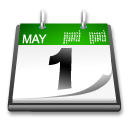The Key is Consistency
Andrew Hitz
Much more important than total time spent is the consistency with which you practice.
If I don't practice one day, I know it; two days, the critics know it; three days, the public knows it.
- Jascha Heifetz
Consistency in terms of both how often you practice and how focused you are in the practice room.
The first step to consistency is practicing every single day. The best way to get playing in the extreme high register is to play in the extreme high register. Pretty simple stuff.
The second step is how consistently you bring a laser-like focus to your practicing.
I had the privilege of watching David Fedderley work with the top three finishers in the Young Artist competition at a conference back in March. The top two players were really good. Very impressive for 19 and 20 year olds.
The person who finished third in the competition played last of the three and was by far the best musical storyteller of the bunch but her tuba playing was well behind them. David asked her, knowing the answer, "So with that musical storytelling, you won the competition, right?" She simply smiled.
He then explained that the other two were much better tuba operators than she was at this point but that she had musical ideas that were just dying to get out of her horn.
He then pointed at me, then Charles Villarubia, Justin Benavidez, and Demondrae Thurman. He asked her what all of us have in common. She smiled and said "They are professionals."
He said "Yes. They get paid to play their horns for people. Do you know what else they have in common? I know each of them and know that they each bring a laser-like focus with them every single time they practice."
You could see the lightbulb go off in the student on the spot.
So while the amount you practice is certainly important, the consistency in how often your butt is in that chair coupled with the focus you bring to those sessions is much more important.

